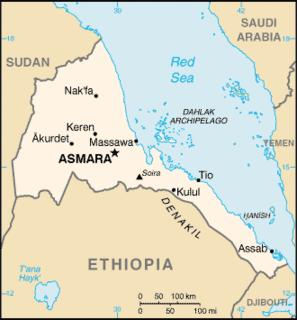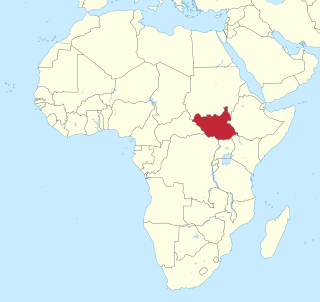
United Nations Security Council resolution 897, adopted unanimously on 4 February 1994, after reaffirming resolutions 733 (1992) and 886 (1992) and all of its subsequent resolutions on Somalia, the Council discussed the role of the United Nations Operation in Somalia II in the peace process in the country.

United Nations Security Council resolution 959, adopted unanimously on 19 November 1994, after recalling all resolutions on the situation in Bosnia and Herzegovina including resolutions Resolution 824 (1993) and Resolution 836 (1993), the Council discussed the efforts of the United Nations Protection Force (UNPROFOR) to ensure the implementation of Security Council resolutions in the safe areas of Bosnia and Herzegovina.

United Nations Security Council Resolution 1919, adopted unanimously on April 29, 2010, after recalling resolutions 1674 (2006), 1894 (2009) on the protection of civilians in armed conflict, 1612 (2005) and 1882 (2009) on children in armed conflict, 1502 (2003) on the protection of humanitarian and United Nations personnel, and 1325 (2000), 1820 (2008), 1888 (2009), and 1889 (2009) on women, peace, and security, the Council extended the mandate of the United Nations Mission in Sudan (UNMIS) until April 30, 2011 with the intention of renewing it further if necessary.

United Nations Security Council resolution 1369, adopted unanimously on 14 September 2001, after reaffirming resolutions 1298 (1999), 1308 (2000), 1312 (2000), 1320 (2000) and 1344 (2001) on the situation between Eritrea and Ethiopia, the Council extended the mandate of the United Nations Mission in Ethiopia and Eritrea (UNMEE) until 15 March 2002.
United Nations Security Council Resolution 1935, adopted unanimously on July 30, 2010, after reaffirming all previous resolutions and statements on the situation in Sudan, the Council extended the mandate of the African Union – United Nations Hybrid Operation in Darfur (UNAMID) for a further 12 months until July 31, 2011 and demanded an end to fighting and attacks on United Nations personnel and civilians.

United Nations Security Council resolution 1466, adopted unanimously on 14 March 2003, after reaffirming all resolutions on the situation between Eritrea and Ethiopia, particularly Resolution 1434 (2002), the Council extended the mandate of the United Nations Mission in Ethiopia and Eritrea (UNMEE) until 15 September 2003.

United Nations Security Council Resolution 1937 was a resolution passed in the wake of the recent 2010 Israel–Lebanon border clash, requested by the Lebanese government and adopted unanimously on August 30, 2010, that extended the mandate of the United Nations Interim Force in Lebanon (UNIFIL) for a further twelve months—until August 31, 2011—and called upon all parties to respect the Blue Line.

United Nations Security Council resolution 1586, adopted unanimously on 14 March 2005, after reaffirming all resolutions on the situation between Eritrea and Ethiopia, particularly Resolution 1560 (2004), the Council extended the mandate of the United Nations Mission in Ethiopia and Eritrea (UNMEE) until 15 September 2005.

United Nations Security Council Resolution 1990, adopted unanimously on June 27, 2011, after recalling all previous resolutions on the situation in Sudan and the Comprehensive Peace Agreement, the Council established the United Nations Interim Security Force for Abyei (UNISFA) in the disputed Abyei region between Sudan and South Sudan.

United Nations Security Council Resolution 1996, adopted unanimously on July 8, 2011, after welcoming the independence of South Sudan from Sudan, the Council established the United Nations Mission in the Republic of South Sudan (UNMISS) for an initial period of one year.
United Nations Security Council Resolution 1997, adopted unanimously on July 11, 2011, after recalling resolutions 1590 (2005), 1627 (2005), 1663 (2006), 1706 (2006), 1709 (2006), 1714 (2006), 1755 (2007), 1812 (2008), 1870 (2009), 1919 (2010) and 1978 (2011) on the situation in Sudan, the Council authorised the withdrawal of the United Nations Mission in Sudan (UNMIS) by August 31, 2011.

United Nations Security Council Resolution 2003, adopted unanimously on July 29, 2011, after reaffirming all previous resolutions and statements on the situation in Sudan, the Council extended the mandate of the African Union – United Nations Hybrid Operation in Darfur (UNAMID) for a further 12 months until July 31, 2012.
United Nations Security Council Resolution 1755 was unanimously adopted on 30 April 2007.
United Nations Security Council Resolution 1784 was unanimously adopted on 31 October 2007.
United Nations Security Council Resolution 1798 was unanimously adopted on 30 January 2008.
United Nations Security Council Resolution 1870, unanimously adopted on 30 April 2009, extended the mandate of the United Nations Mission in Sudan for another year urging all parties to comply fully with the 2005 Comprehensive Peace Agreement that ended a 21-year civil war between north and south Sudan.
United Nations Security Council Resolution 1827 was unanimously adopted on 30 July 2008.

United Nations Security Council Resolution 2032 was unanimously adopted on December 22 2011 after recalling resolution 1889 (2009). The Council also demanded that Sudan and South Sudan urgently finalize the establishment of the Abyei Area Administration and Police Service in accordance with previous agreements, urging them to make use of the mechanisms that had been developed to resolve outstanding issues related to the borders and the demilitarized zone.
Lieutenant General Tadesse Werede Tesfay is a general with the Ethiopian National Defense Force (ENDF). He was born in Mekelle, a city in Enderta province of Ethiopia.











